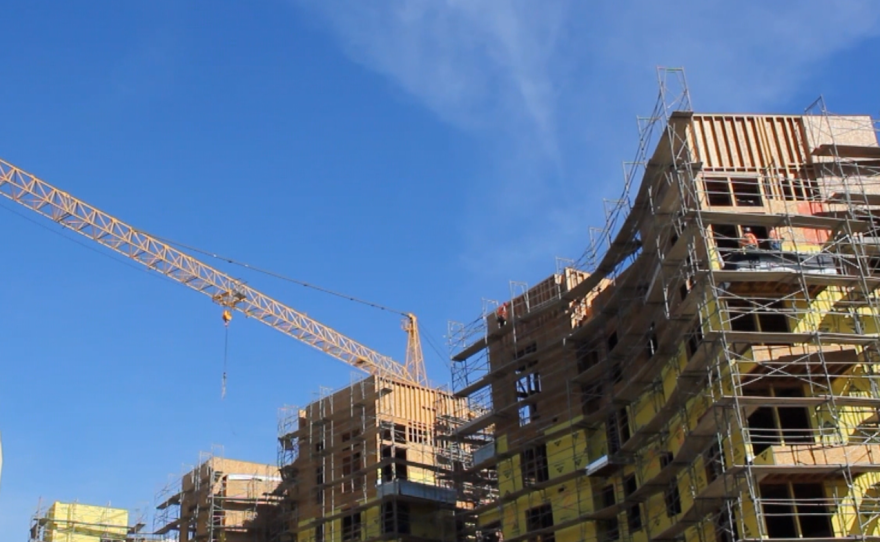The San Diego Housing Authority unanimously voted Tuesday to approve the San Diego Housing Commission's $525 million Fiscal Year 2021 budget, which includes $19 million to be used to purchase hotels and $10 million to house homeless San Diegans in those properties.
The budget — the largest in the commission's history — is $72 million, or 16% bigger than last year's budget, according to Rick Gentry, the San Diego Housing Commission's president and CEO. Officials said $428 million is already tied directly to budget items and more than $90 million will be kept in reserves for amended and emergency items throughout the year.
By far the largest source of funds is the federal government, which will contribute more than $307 million. Local funding amounts to $49 million and state funding totals $24 million.
The housing commission has $143 million in reserves.
About $221 million, or 51% of non-reserve money, is earmarked for the city's rental assistance programs. Another $97 million will go into real estate, $59 million to homeless housing innovations, $30 million for capital expenditures and $21 million for operations support.
The COVID-19 pandemic had a significant impact on the revised budget passed Tuesday, with Coronavirus Aid, Relief, and Economic Security Act funding $3.6 million for an emergency solution grant and $2.4 million in housing choice voucher funds. Additionally, increased rental assistance was a factor, as well as the new ability to purchase hotels for rapid homeless rehousing efforts.
The move to purchase hotels to help house the city's homeless population is spurred by both the COVID-19 pandemic and the city's "continued increased concentration of efforts and funding to address the homelessness crisis in San Diego," according to commission documents.
Gentry said the commission had already looked at and turned down 17 hotel properties since late March when the need for increased housing became readily apparent and hotel owners began looking to sell as a result of loss of business.
The commission is currently investigating three properties — all of which were designed as long-term stay hotels — and any offer will be brought before the Housing Authority before a purchase is made.
Gentry said $19 million "seems like a lot, but it doesn't (go) far."
Jennifer Campbell, city councilwoman and housing authority member, joined other council members in thanking the commission for designing a flexible budget during a pandemic and economic slowdown.
"The Housing Commission has a reputation for creativity and innovation, and we need both for our residents as we work our way through this crisis," she said.
The Housing Authority's board directly overlaps with the San Diego City Council.
The reason for increased efforts to tackle the city's homelessness crisis and to provide assistance to renters was made apparent when City Council President Georgette Gomez asked Gentry about San Diego's wait for Section 8 housing.
The waitlist is 80,000 families long for 16,000 vouchers — a wait time of eight to 10 years — and only around 50 vouchers become available every month, he said.
"The math's not hard to do," Gentry said.
The newly passed budget includes five new positions and a 3.5% cost-of-living adjustment for the more than 340 employees already working under the commission's purview.
Councilman Mark Kersey raised the question of budget increases, particularly in personnel, in a time where the city was preparing to slash budgets.
Gentry said the commission's budgets have typically run "counter-cyclical to the general economy," noting that when times are good, the housing commission has less to do and budgets decrease. When times are hard, that budget goes up as it takes on more of the burden of housing San Diegans.






